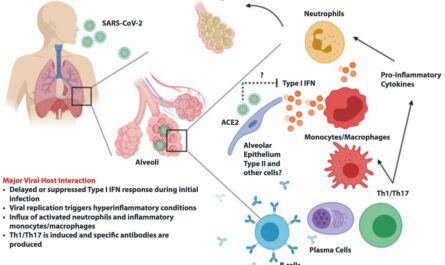In a recent study conducted on infant mice, researchers have discovered a potential new method to prevent the spread of influenza A infections. The study, led by scientists from NYU Grossman School of Medicine, demonstrated that blocking the attachment of viral particles to sugar molecules called sialic acids (SAs) not only limits the entry of the virus into the body but also hinders its shedding and transmission from mouse to mouse.
Previous research has shown that many viruses and bacteria initiate infections by latching onto SAs on the surfaces of cells lining the sinuses and throat. By desialylating, or stripping away, the SA receptors using a neuraminidase enzyme, the researchers were able to significantly reduce the transmission rates of influenza A among the mice. In fact, the treatment decreased mouse-to-mouse transmission rates by more than half in the six influenza strains tested.
The study was conducted on infant mice specifically because they were found to have a high concentration of SAs in the upper portion of their respiratory tract, making them a suitable model for studying the spread of respiratory infections in children. Children are known to be important drivers of flu transmission among humans.
While vaccines and symptom treatments are available, they are not always effective in preventing the spread of the flu. This study suggests that targeting the host’s ability to transmit the virus could be a promising strategy in combating infectious diseases. If further experiments in humans prove successful, desialylating neuraminidase enzymes may be used to prevent the spread of the flu.
Lead investigator and infectious disease specialist Mila Ortigoza, MD, Ph.D., emphasizes that extensive clinical research is required before neuraminidases can be considered a viable treatment for humans. Ortigoza also expressed plans for additional experiments to explore why infants are more susceptible to respiratory infections and whether blocking sialic acids in children can effectively prevent the spread of influenza.
The findings of this study, published in the journal mBio, provide new insights and potential avenues for preventing the transmission of influenza. As the flu continues to pose a significant public health threat, further research in this area may lead to improved strategies for combating the spread of infectious diseases.
*Note:
1.Source: Coherent Market Insights, Public sources, Desk research
2.We have leveraged AI tools to mine information and compile it



